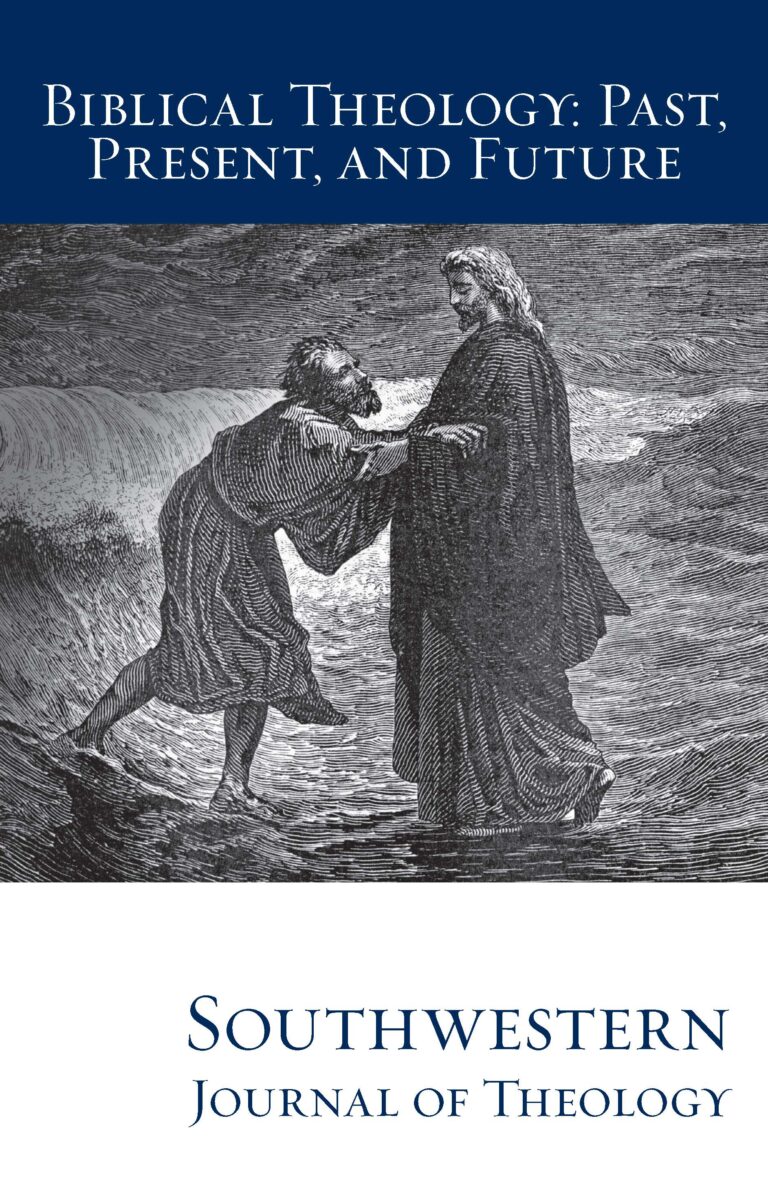
Biblical Theology: Past, Present, and Future (II)
Southwestern Journal of Theology
Volume 56, No. 1 – Fall 2013
Managing Editor: Terry L. Wilder
By Michael F. Bird. Peabody, MA: Hendrickson, 2010. 208 pages. Softcover, $24.99.
This book grew out of a footnote! The pregnant footnote was in Jesus and the Origins of the Gentile Mission, which Michael Bird wrote in 2006. In the footnote, he touched on the question of Jewish missionary activity in the Second Temple period based on his current research; however, he did not have an opportunity to explain properly his conclusions until this present volume (1). In Crossing Over Sea and Land, Bird asserts the lack of a concerted or organized Jewish missionary activity, thus offering “an update, revision, and sometimes a challenge” (viii, see 1213) to his mentor Scot McKnight’s earlier work, A Light among the Gentiles: Jewish Missionary Activity in the Second Temple Period. Bird mostly sides with McKnight in demonstrating that the sparse Jewish missionary activity among the Gentiles did not help contribute to early Christian evangelism among Gentiles (6, 12-13). Thus, Bird demonstrates that these Jewish activities were not an organized mission (7, 76, 97-98, 132, 148-50). Proselytizing Gentiles was rare and spasmodic (149), and the conversions of Gentiles to Judaism usually occurred at the initiation of the Gentiles (13).
To modern Christians unfamiliar with these modern studies, an assertion of concerted Jewish missionary activity at any time may come as a surprise, yet this was the prominent scholarly view a century ago (8-9). Certainly orthodox Jews in Paul’s day (Acts 4:15-18; 5:17-18, 27-28; 14:19; 17:5-9, 13; 18:12-13; 19:9; 21:27-28; 22:22) as well as today strongly resist what they call proselytizing, such as Christian evangelism among fellow Jews, but they rarely go on the offensive actively to seek converts to Judaism.
The extant evidence is fragmentary (a helpful appendix lists the source texts in the original language along with an English translation, 157-76), so it results in differing interpretations among scholars. Bird correctly describes how part of the controversy over whether or not the Jews had an organized mission is due to differing definitions of words such as “Jew” and “mission,” so he starts this helpful study by defining terms (17-43).
Bird effectively engages with and refutes scholars who assert organized Jewish missional activity, such as Louis Feldman (11, 111). Bird does a good job in examining and interpreting the pertinent Palestinian evidence (rabbinic literature, Qumran literature, and inscriptions, 55-76), Diaspora evidence (i.e., Philo, Josephus, and apologetic-propagandistic literature, 77-132), and the New Testament and early Christian literature (133-48).
Matt 23:15 is the strongest NT indication of a possible Jewish mission to the Gentiles, and the book title comes from this verse. However, Bird effectively offers three alternate, plausible interpretations for Pharisees and scribes crossing land and sea to make one convert that avoid the interpretation of proselytizing Gentiles: (1) converting other Jews to the Pharisee sect, (2) converting God-fearers into full Jews, or (3) converting God-fearers to a zealot-like rebellion against Rome (6869). Yet, this reviewer disagrees with what Bird calls the clearest example of Jewish missional activity in the New Testament: Jewish Christian proselytizers (also known as Judaizers, although Bird dislikes this term) (136-37, 146). It seems they were simply a reactionary movement against Christianity, and they tried to reclaim Jews who became Christians rather than seeking to convert Gentiles.
Bird teaches theology at the Bible College of Queensland in Brisbane, Australia. Along with N. T. Wright, Bird was a featured lecturer at the 2010 Institute for Biblical Research meeting in Atlanta. He is an engaging speaker, and in Crossing Over Sea and Land he gives a fascinating book that ought to be of interest to both Christians and Jews who are interested in their history, which in turn, helps one better understand both faiths today.





